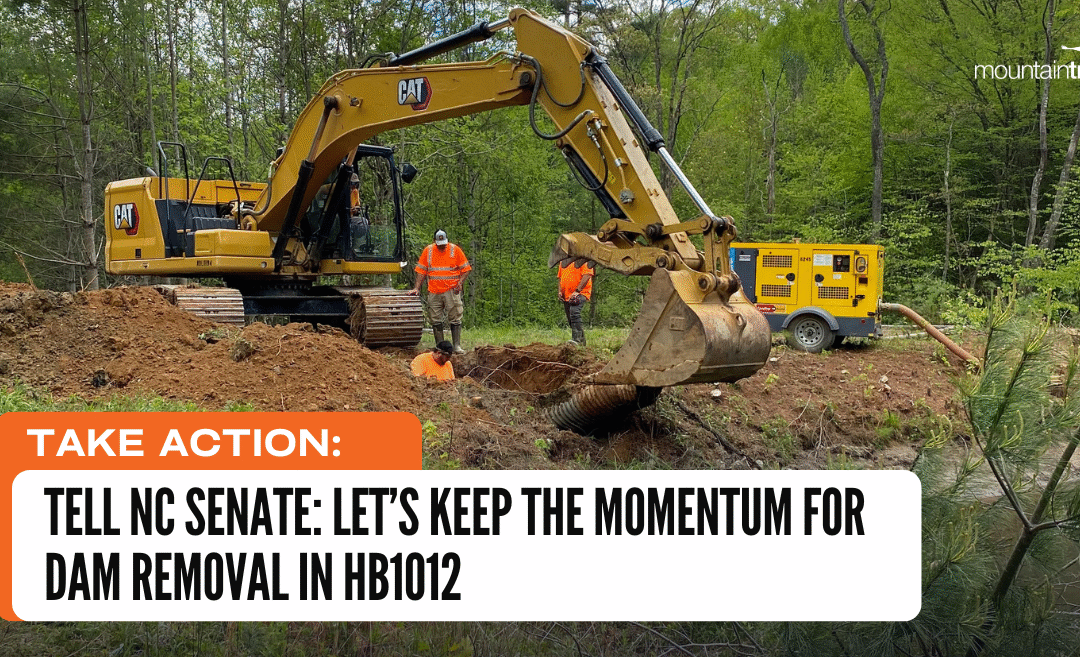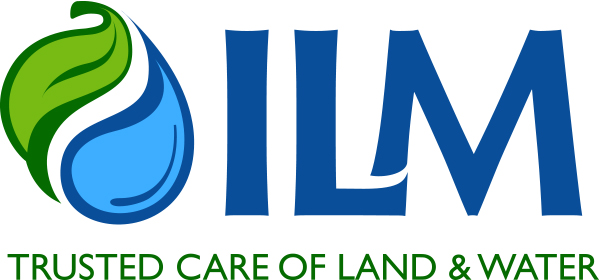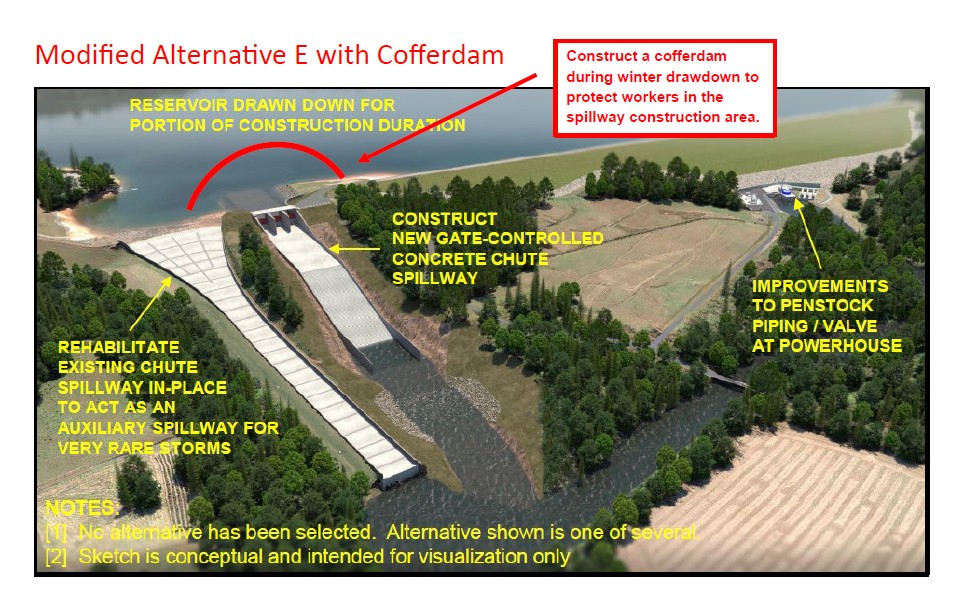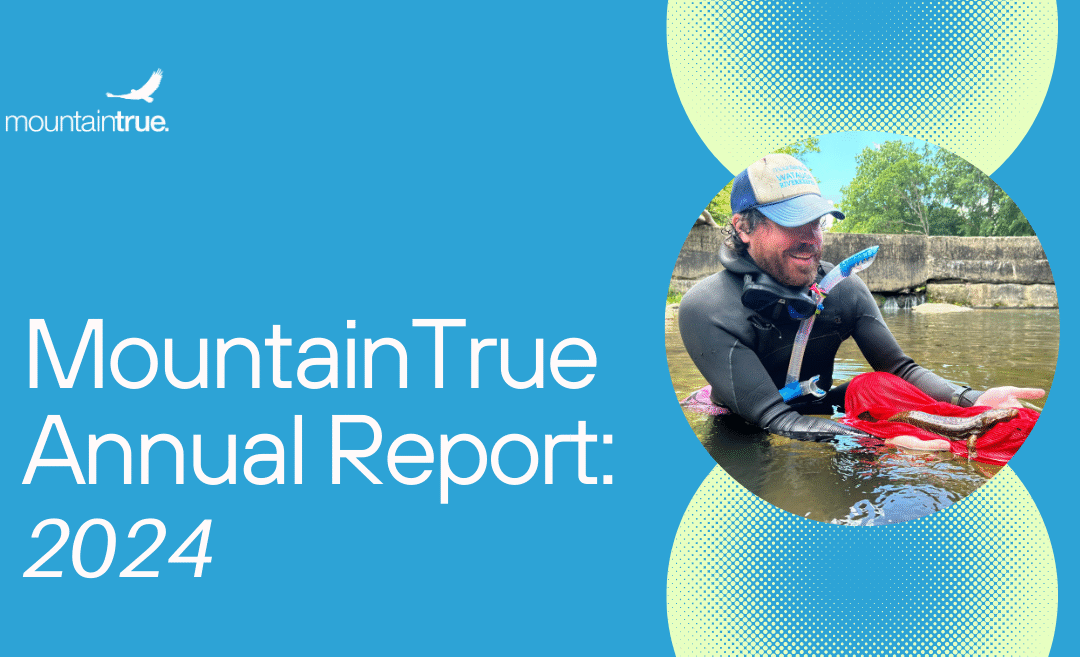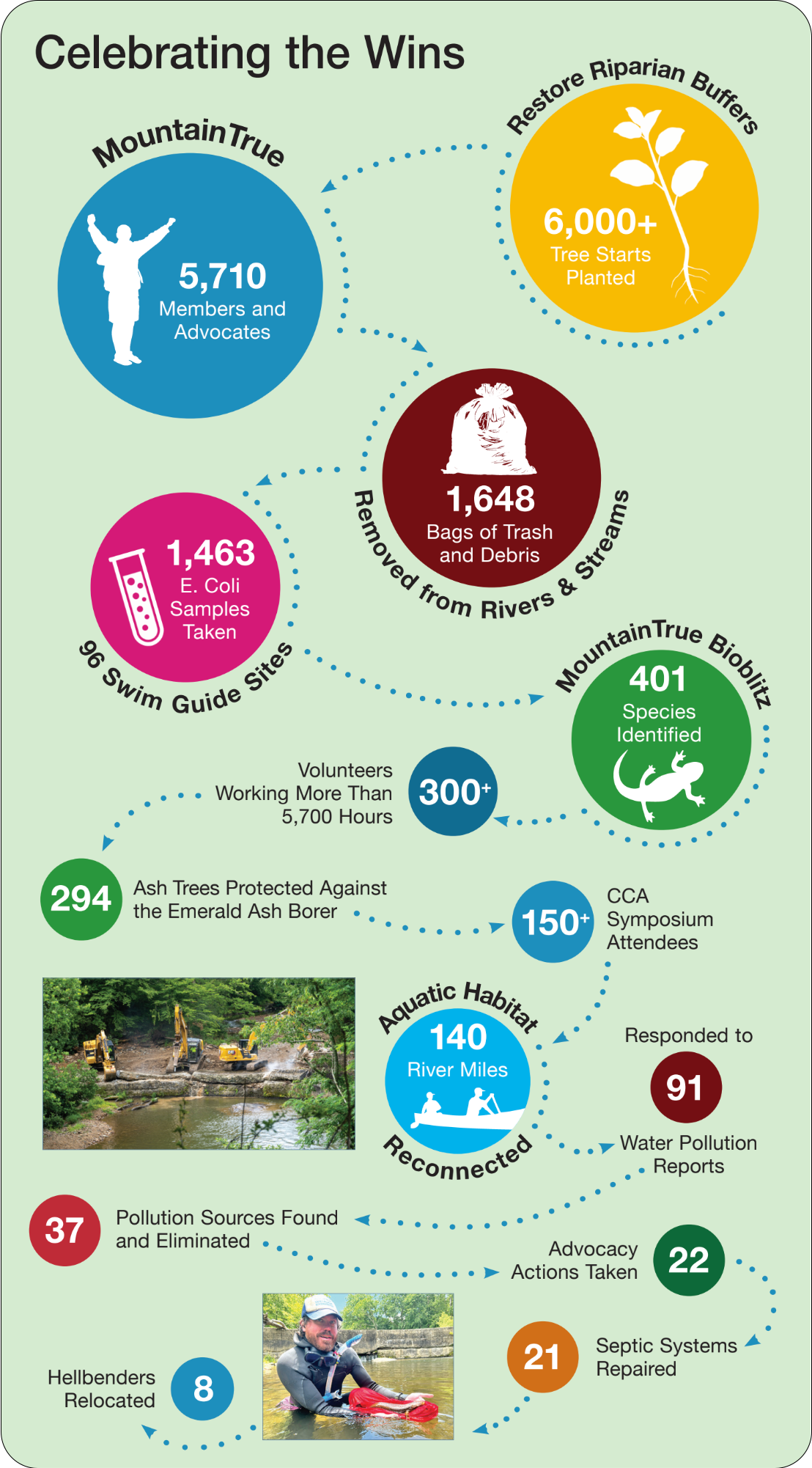
Resilient Forests Organizer
Position Summary
MountainTrue is seeking a Resilient Forests Organizer. This is a full-time position (40hrs/week) based in western North Carolina that reports to the Organizing Manager. They are tasked with:
60% – Organizing, advocacy, and outreach to engage the public to address threats and seek opportunities to protect, invest in, and better steward local, state, and federal public lands in the region.
40% – Manage volunteers to steward public lands and build a sense of ownership and appreciation for our public lands through activities such as non-native species control, ecological restoration, and monitoring and maintenance of trail and road infrastructure on public lands.
Key Responsibilities
- Work with the Resilient Forests Program Director, Organizing Manager, Deputy Directors, Regional Directors, and partner organizations to organize the public around campaigns to protect public lands from exploitation.
- Support the Resilient Forests Program Director, the Organizing Manager, and Regional Directors to organize MountainTrue members and the general public to steward public lands by controlling invasive species, maintaining trails, monitoring road conditions, and helping to accomplish ecological restoration projects.
- Educate the public about their rights and responsibilities through curricula, blog posts, social media, letters to the editor, and opinion pieces related to public lands.
Qualifications
Organizing Experience: Proven experience working with communities on issue campaigns through on-the-ground grassroots organizing and online mobilization.
Project Leadership: Experience in planning, leading, and managing projects, including coordinating with peers to achieve desired outcomes, and tracking and reporting on progress to senior managers.
Communications: Skilled in creating powerful, compelling written and oral communications. Ability to convey complex ideas through brief, simple materials. Experience and credibility when presenting materials to external audiences.
Collaboration: Effective at working with others to reach common goals and objectives.
Relationship Building: Skilled at establishing and cultivating strong relationships with peers, across different levels of the organization and externally. Proven ability to establish strong relationships with community members.
Additional Qualifications: Required
- Familiarity with Western North Carolina and the Southern Blue Ridge Mountains.
- Demonstrated excellence in organizational, interpersonal, and communication skills.
- Proficiency and comfort with public speaking.
- Experience and ability to work outdoors, including in steep terrain and inclement weather.
- Willingness to learn new skills and grow.
Additional Preferred Experience
- Experience with online advocacy tools or CRMs such as EveryAction, Bonterra, Action Network, Salsa Labs, Blue State Digital, or Nationbuilder
- Proficiency in basic computer applications and software
- Fundraising experience
- Project management tools such as Asana, Monday, or Zoho
- Leading groups in outdoor settings
- Knowledge of public lands and local conservation issues
- Knowledge of local flora, fauna, and ecology
- Experience with wilderness first aid
Location & Travel
This position is based in Western North Carolina. This position utilizes frequent virtual meetings and phone calls. Travel costs are covered by the organization.
Compensation
$50,000 annual salary. The benefits package includes 20 vacation days per year, 12 holidays, sick leave, a sabbatical after five years, health insurance, and a simple IRA with an employer contribution of up to 3%. MountainTrue provides continuing education and professional development support.
How to apply
Email resume, cover letter, and three references to Organizing Manager Linda Tatsapaugh at linda@mountaintrue.org.
In your cover letter, describe your role in a past grassroots campaign and what you learned from the experience. Also, name your favorite protected species (flora or fauna) and why.
Application deadline: Friday, July 25, 2025
MountainTrue values and respects all types of diversity and strongly encourages applicants from traditionally marginalized groups to apply. We prohibit discrimination and harassment and provide equal employment opportunity without regard to, and not limited to, ethnicity, religion, race, national origin, abilities, gender identity, age or genetic information. We are committed to recruiting, hiring, and promoting those from minority and disadvantaged groups.


